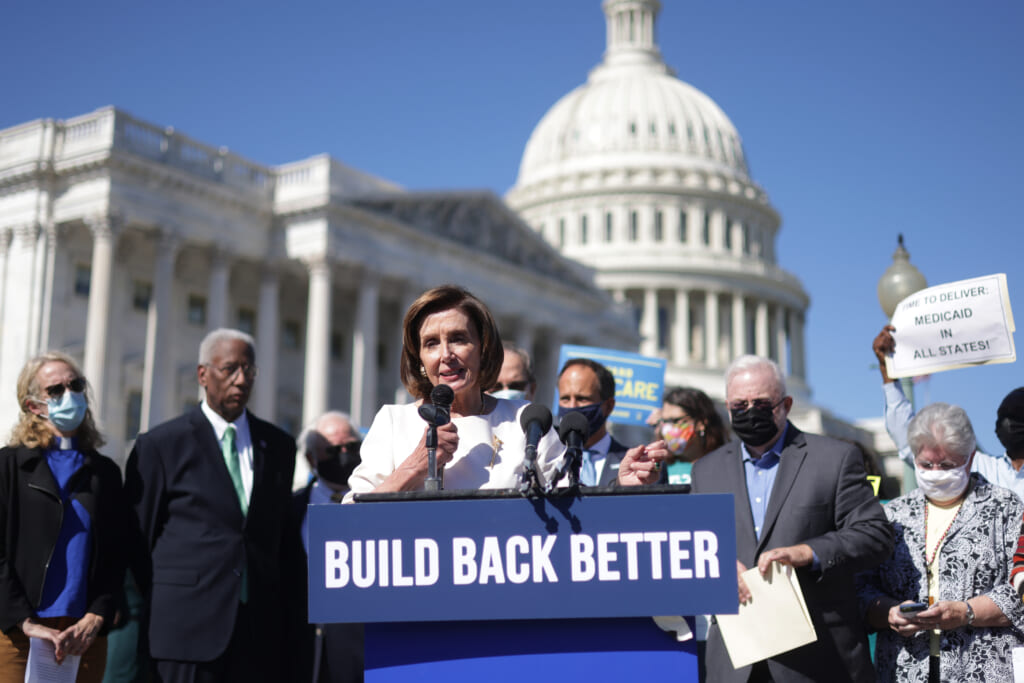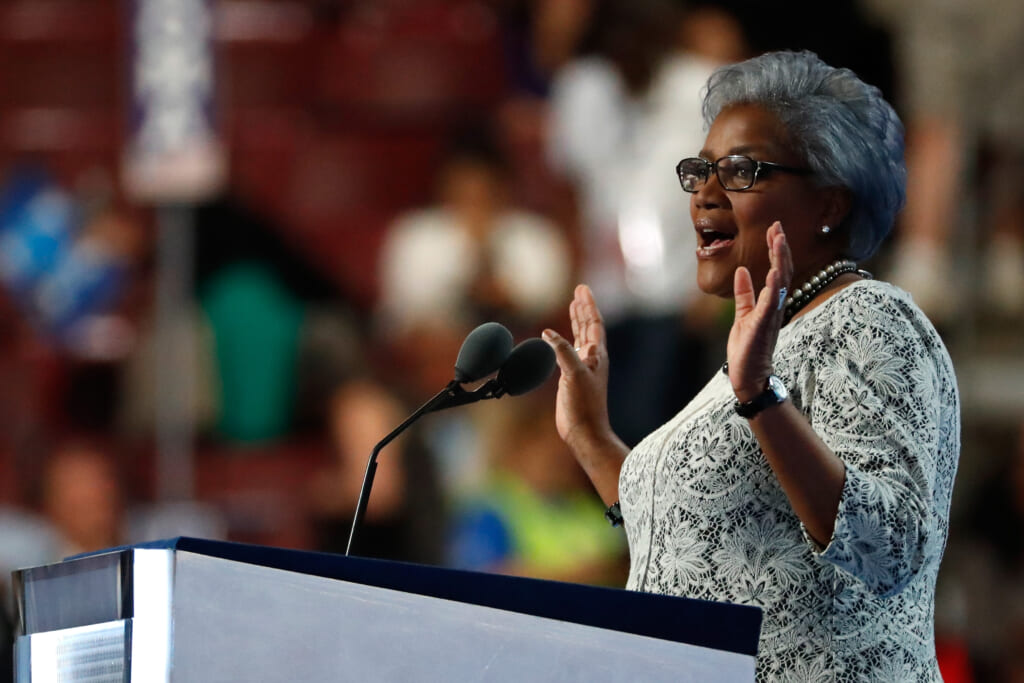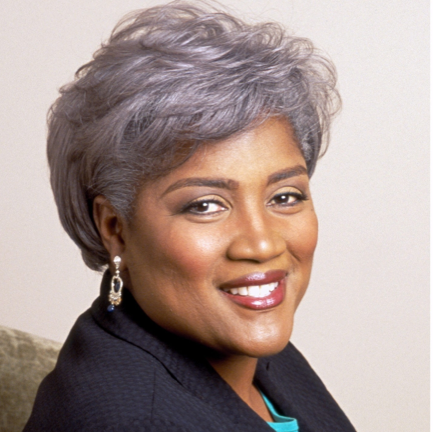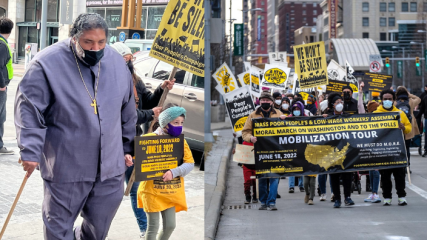Equal pay remains elusive for Black women, but there’s progress thanks to the Biden-Harris administration
OPINION: President Joe Biden and Vice President Harris are helping close the wage and opportunity gap, but recognize that more must be done.

Editor’s note: The following article is an op-ed. The views expressed are the author’s own. Read more opinions on theGrio.
The White House Equal Pay Day Summit, hosted Tuesday by Vice President Kamala Harris, highlighted the unequal pay and job opportunities women receive — especially Black women and other women of color.
While the average woman working full-time earned 83 cents for every dollar earned by the average man in 2020, the average Black woman earned just 64 cents for every dollar made by a White man.
“Over a 40-year career, a woman will lose out on about $400,000” because of the pay gap, Vice President Harris said at the summit. “For Black women, Latina women, Native American women, that loss in wages is closer to $1 million.”
According to a U.S. Labor Department report, Black women as a whole lost $39.3 billion and Latinas lost $46.7 billion due to this wage gap in 2019 alone.

When women are denied equal pay, it robs us of our ability to support our families. Combined with the wage gap faced by Black men and less inherited family wealth, this accounts for the huge gap in net worth between Black and White families.
According to a 2020 report by the Brookings Institution, “the net worth of a typical white family is nearly ten times greater than that of a Black family”— $171,000 for a White family vs. $17,150 for a Black family in 2016.
President Joe Biden and Vice President Harris are helping close the wage and opportunity gap, but recognize that more must be done. That’s why they announced steps Tuesday to combat pay disparities based on gender, race and ethnicity in the federal workforce and among federal contractors. That’s also why they’ve already raised the minimum wage for federal workers and contractors to $15 an hour and have asked Congress to raise the federal minimum wage for other workers to the same level.
Additional actions by the Biden-Harris administration and Congress have also made important steps forward. These include the American Rescue Plan that kept child care centers open and provided millions of families with tax relief to help parents afford child care, along with the bipartisan infrastructure law, presidential executive orders and much more.
Progress on other fronts has been stalled by the failure of the Senate to approve the Build Back Better Act advanced by the administration.

The president has also recognized the talents of women and people of color with his appointments. The Biden-Harris administration is the most diverse in American history, with women making up 60% of the White House staff (including 56% of the senior staff), and with 44% of White House staffers coming from racially or ethnically diverse communities. Women make up 45% of the administration’s Cabinet, while 55% of Cabinet appointees are people of color.
And, of course, President Biden selected Harris to become the first female, Black and Asian American vice president, and has nominated the extraordinarily qualified U.S. Circuit Court of Appeals Judge Ketanji Brown Jackson to become the first Black woman to serve on the Supreme Court.
As a Black woman, I’ve understood job discrimination against people who look like me all my life.
My mother, who was born in 1936, finished high school and attended college for two and a half years. Yet, she couldn’t find sustainable work and earned low wages as a maid and nanny working for wealthy White families.
Racism, sexism, and growing up in poverty combined limit how far and high these hardworking and intelligent women could rise. It’s sad to think about how much they could have accomplished and how America could have benefitted if not for these discriminatory barriers.
Black women in my generation had new opportunities, and many became teachers, nurses, bookkeepers or accountants, and entered other professions as well, although we usually got paid less than our White male counterparts.
I was blessed with the opportunity to get a college education, but in my own career in Democratic politics, I often earned less than men doing the same jobs and was treated with less respect.
The older I got, the more I demanded equal pay and treatment. But early on, I never expected to become the first Black woman to manage a major party presidential campaign — a position I achieved with Vice President Al Gore in 2000.

I can identify with the sentiments of the late Rep. Shirley Chisholm, the first Black woman elected to the U.S. House of Representatives in 1968 and the first Black candidate for a major party presidential nomination in 1972, when she said: “I have certainly met much more discrimination in terms of being a woman than being Black, in the field of politics.”
The number of women in the U.S. House and Senate has risen dramatically in my lifetime, going from only 19 in 1959 (none Black) to 149 today, among them 28 Black women serving in the House (two as non-voting delegates), but none in the Senate since Harris resigned her seat to ascend to the vice presidency. Still, only 27% of Congress is female — a far cry from equal representation for each gender.
Young women of all races have an easier time today climbing the career ladder than I had, and a much easier time than the generation that came before me. Yet Black women continue to have extra barriers to overcome.
But we shall overcome, thanks to the civil rights and women’s rights pioneers who sacrificed so much and on whose shoulders we stand, and thanks to President Biden, Vice President Harris and many other women and men of all backgrounds working for our continued progress.

Donna Brazile is an ABC News Contributor, veteran political strategist, an adjunct professor at Georgetown University, and the King Endowed Chair in Public Policy at Howard University. She previously served as interim Chair of the Democratic National Committee (DNC) and of the DNC’s Voting Rights Institute. She managed the Gore campaign in 2000 and has lectured at more than 225 colleges and universities on race, diversity, women, leadership and restoring civility in politics. Brazile is the author of several books, including the New York Times’ bestseller “Hacks: The Inside Story of the Break-ins and Breakdowns That Put Donald Trump in the White House.” @DonnaBrazile
TheGrio is now on your TV via Apple TV, Amazon Fire, Roku, and Android TV. Also, please download theGrio mobile apps today!”
More About:Opinion












